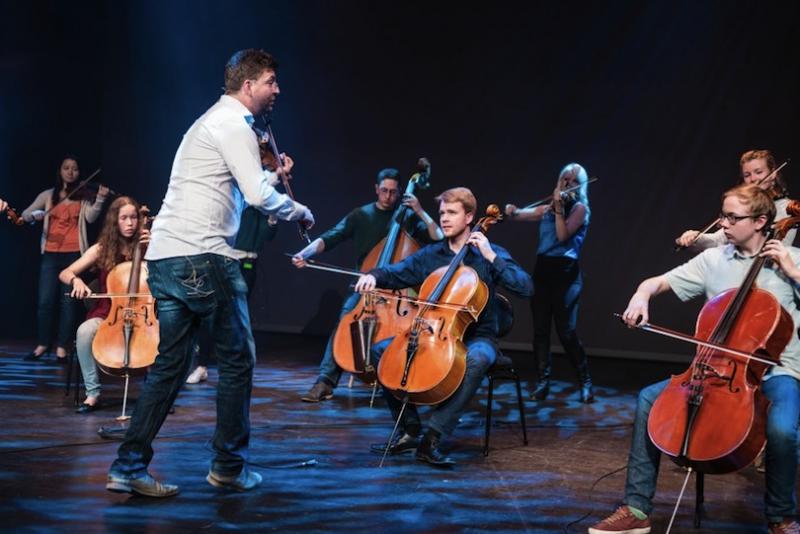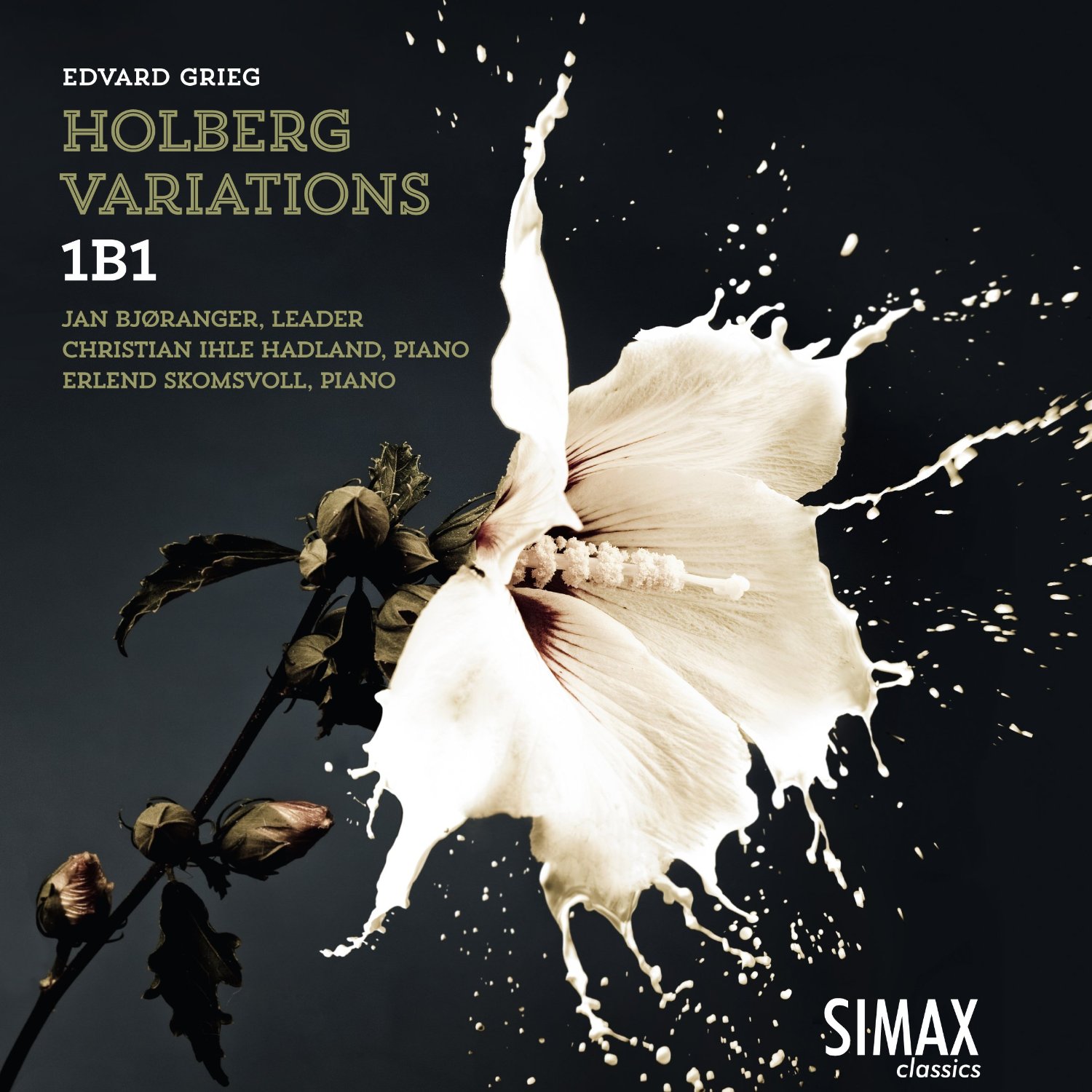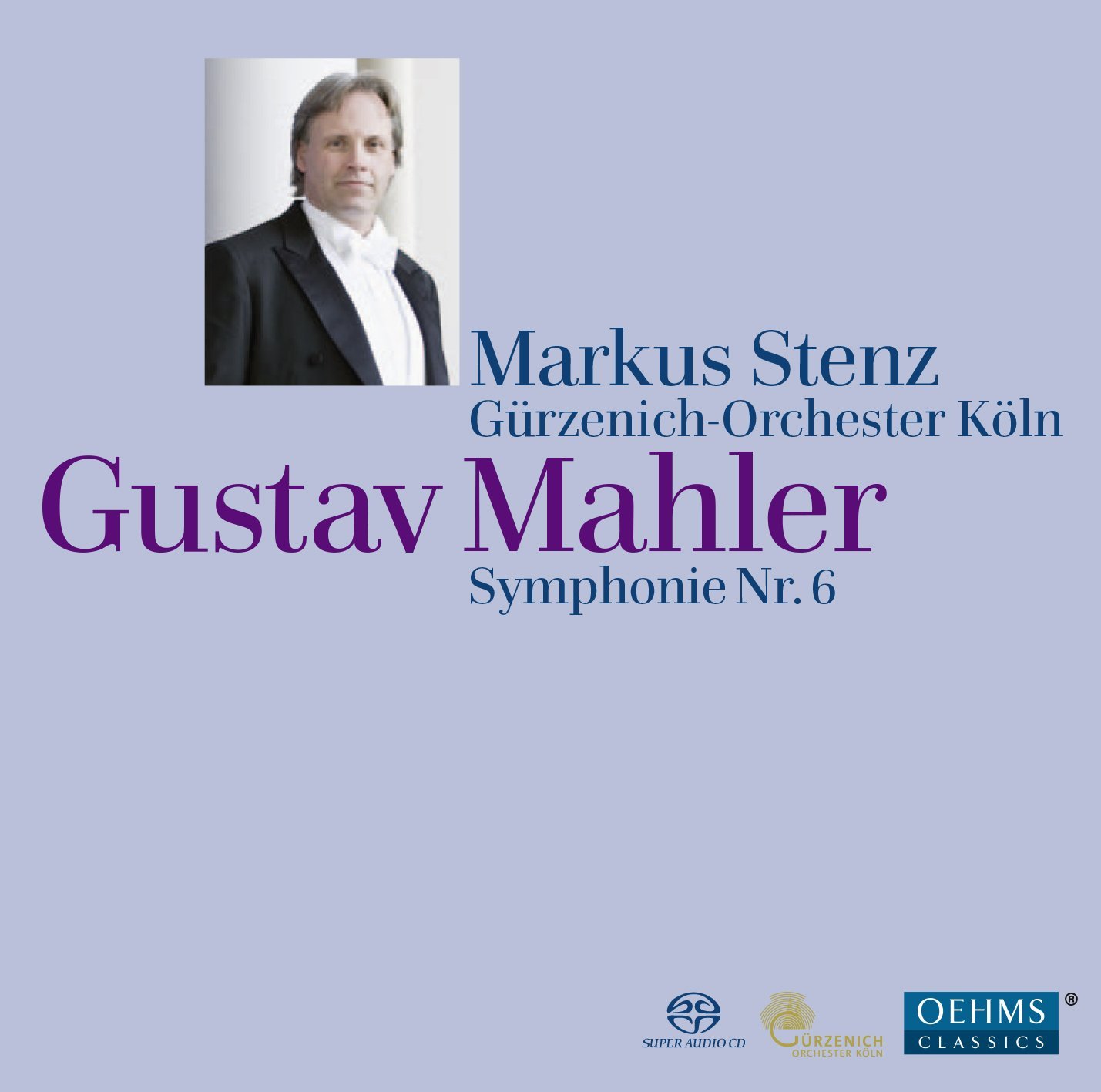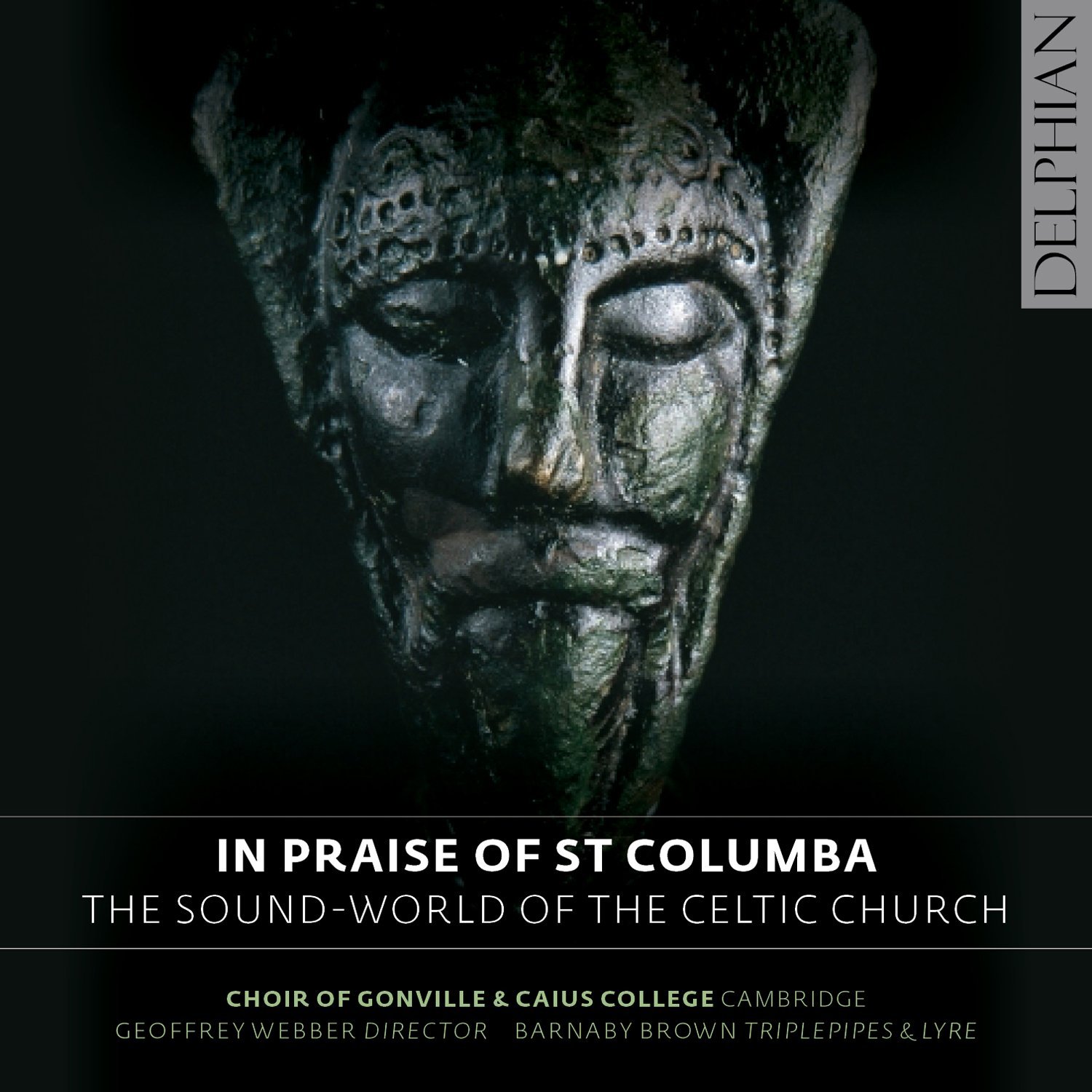Classical CDs Weekly: Grieg, Mahler, Choir of Gonville & Caius College | reviews, news & interviews
Classical CDs Weekly: Grieg, Mahler, Choir of Gonville & Caius College
Classical CDs Weekly: Grieg, Mahler, Choir of Gonville & Caius College
Folk-tinged fun from Norway, the bleakest of symphonies, and an enchanting choral disc


This release has a nifty title, and contains three different performances of Grieg's ubiquitous Holberg Suite, each one marvellous in its own way. This five-movement piece began life as a work for solo piano in 1884, the familiar string orchestra version following a year later. The Norwegian pianist Christian Ihle Hadland plays the original incarnation, and phenomenally well; the faster, tricky music made to sound wholly natural and spontaneous. There's something magical about his shaping of the Prelude's second theme – speed and volume drop imperceptibly, drawing the listener in. It's impossible not to grin. Hadland plays the fourth movement Air with utter sincerity, and the Rigaudon bounces along. He's preceded on this compilation by the string version, performed by a dynamic Norwegian chamber orchestra known as 1B1, led by violinist Jan Bjøranger. Their reading is impossibly fast in places, but affectionate enough to avoid fierceness. The inner movements glow; the Sarabande has cool poise and the Musette moves with deft grace. Both accounts are beautifully, closely recorded.
The bonus item is a reconfigured Holberg Suite devised by jazz pianist Erlend Skomsvoll in collaboration with the musicians of 1B1. Purists will disapprove, but it's an effective reboot. The Prelude opens as Grieg scored it; then a swift dissolution is followed by a brilliant piano cadenza. Skomsvoll's Sarabond is a piece of upmarket lounge music, and Gavotterised opens with an Ivesian haze. Airsm initially suggests Jacques Loussier, before we hear an untranslated Norwegian monologue intoned over humming string players. One hopes that Grieg would have approved; Skomsvoll has his fun but everything he does is motivated by a deep respect for the original. An invigorating, uplifting collection.
More and more recordings, especially of big orchestral works, are made live – presumably for economic reasons. This new Mahler 6 is an example. Not that you'd immediately notice. The playing is so polished that I found myself craving a few rougher edges and split notes. Audience noise is non-existent. The brass, especially, are immaculate – the first A minor horn chord wonderfully weighty, the stratospheric trumpet solo perfect. Markus Stenz's control of dynamics is startling – listen to this performance with a score and marvel at how these players let us hear the difference between mezzo forte, forte and fortissimo. He's also good at tempi – his idiomatic ebb and flow in the first movement's Alma theme is a joy to hear, and it never impedes the music's forward motion. Time stands still in the cowbell interlude, making the return to march mode that much more of a slap in the face. The breezy, affirmative close is well done, and Stenz's decision to reverse the middle movements means that Mahler's Andante moderato continues the positivity. It receives another beautiful reading, with wind solos soaring over velvety string tone.
The Scherzo's tone is less oppressive, with a witty, pointed trio section, though Stenz darkens the mood in the sardonic final minutes. I like the Finale's opening to sound rhetorical and weighty, as if you're gazing into the abyss. That doesn't quite happen here – Stenz's control moves us swiftly on towards a bold, positive Allegro moderato. Much of this performance is refreshingly upward-looking, meaning that there are moments when you genuinely believe it'll all end happily. It doesn't, of course, and you'll rarely hear Mahler's solemn trombone threnody played with such concentration. The sound quality is rich and vivid – this set won't disappoint anybody in search of a good modern account. But once you do know and love this symphony, seek out the 1960s recordings by Bernstein and Barbirolli, both of which offer very different, more visceral takes. 
Bodhrán. Lyre. Yes, we know what those are. But medieval Irish horns, and triplepipes? And what on earth is a crotal? Some of these queries are answered in Delphian's comprehensive sleeve notes, but you're best sneaking a peek at www.ancientmusicireland.com. The further you go back into musical history, the greater the element of speculation involved in any performance or recording. This disc's origins lay in a study of the sixth-century Irish Saint Columbus, whose influence spread to Scotland and then into mainland Europe. Seventh-century Ionan hymns, tenth-century chants sung by Irish monks in Switzerland and antiphons from the island of Inchcolm are all stirred into the mix, in a joyous attempt “to counter the modern conception of plainsong as being plain; a single melodic line sung unornamented... in generous Gothic acoustics.” Every interpretative choice made by conductor Geoffrey Webber sounds musically justified, the evidence for them documented in detail in the booklet. If you're sceptical, sample the breathtaking improvised horn duet played on wooden instruments, copies of an original dredged up from the bed of the River Erne. It's a magnificent sound, and hopefully unlike anything you've ever heard – like a couple of musically-literate whales singing an aria.
The range of styles is remarkable; for every spartan chunk of plainchant there's an exuberant foot-tapper. Catchiest is "Cantemus in omni die", its melody notated in 1280 Santiago, here given a rousing, percussion-heavy accompaniment. The strident blast of triplepipes is a sound surprisingly easy to love, and the disc closes with a phenomenal extended solo number played by Barnaby Brown. Webber's Choir of Gonville & Caius College sing brilliantly – there's plenty of weight, and they don't smooth out the music's rough edges. Gorgeous, resonant sound too.
Buy
Explore topics
Share this article
The future of Arts Journalism
You can stop theartsdesk.com closing!
We urgently need financing to survive. Our fundraising drive has thus far raised £49,000 but we need to reach £100,000 or we will be forced to close. Please contribute here: https://gofund.me/c3f6033d
And if you can forward this information to anyone who might assist, we’d be grateful.

Subscribe to theartsdesk.com
Thank you for continuing to read our work on theartsdesk.com. For unlimited access to every article in its entirety, including our archive of more than 15,000 pieces, we're asking for £5 per month or £40 per year. We feel it's a very good deal, and hope you do too.
To take a subscription now simply click here.
And if you're looking for that extra gift for a friend or family member, why not treat them to a theartsdesk.com gift subscription?
more Classical music
 Frang, Romaniw, Liverman, LSO, Pappano, Edinburgh International Festival 2025 review - sunlight, salt spray, Sea Symphony
Full force of the midday sea in the Usher Hall, thanks to the best captain at the helm
Frang, Romaniw, Liverman, LSO, Pappano, Edinburgh International Festival 2025 review - sunlight, salt spray, Sea Symphony
Full force of the midday sea in the Usher Hall, thanks to the best captain at the helm
 Elschenbroich, Grynyuk / Fibonacci Quartet, Edinburgh International Festival 2025 review - mahogany Brahms and explosive Janáček
String partnerships demonstrate brilliant listening as well as first rate playing
Elschenbroich, Grynyuk / Fibonacci Quartet, Edinburgh International Festival 2025 review - mahogany Brahms and explosive Janáček
String partnerships demonstrate brilliant listening as well as first rate playing
 BBC Proms: Akhmetshina, LPO, Gardner review - liquid luxuries
First-class service on an ocean-going programme
BBC Proms: Akhmetshina, LPO, Gardner review - liquid luxuries
First-class service on an ocean-going programme
 Budapest Festival Orchestra, Iván Fischer, Edinburgh International Festival 2025 review - mania and menuets
The Hungarians bring dance music to Edinburgh, but Fischer’s pastiche falls flat
Budapest Festival Orchestra, Iván Fischer, Edinburgh International Festival 2025 review - mania and menuets
The Hungarians bring dance music to Edinburgh, but Fischer’s pastiche falls flat
 Classical CDs: Hamlet, harps and haiku
Epic romantic symphonies, unaccompanied choral music and a bold string quartet's response to rising sea levels
Classical CDs: Hamlet, harps and haiku
Epic romantic symphonies, unaccompanied choral music and a bold string quartet's response to rising sea levels
 Kolesnikov, Tsoy / Liu, NCPA Orchestra, Chung, Edinburgh International Festival 2025 review - transfigured playing and heavenly desire
Three star pianists work wonders, and an orchestra dazzles, at least on the surface
Kolesnikov, Tsoy / Liu, NCPA Orchestra, Chung, Edinburgh International Festival 2025 review - transfigured playing and heavenly desire
Three star pianists work wonders, and an orchestra dazzles, at least on the surface
 BBC Proms: Láng, Cser, Budapest Festival Orchestra, Iván Fischer review - idiomatic inflections
Bartók’s heart of darkness follows Beethoven’s dancing light
BBC Proms: Láng, Cser, Budapest Festival Orchestra, Iván Fischer review - idiomatic inflections
Bartók’s heart of darkness follows Beethoven’s dancing light
 Weilerstein, NYO2, Payare / Dueñas, Malofeev, Edinburgh International Festival 2025 review - youthful energy and emotional intensity
Big-boned Prokofiev and Shostakovich, cacophonous López, plus intense violin/piano duo
Weilerstein, NYO2, Payare / Dueñas, Malofeev, Edinburgh International Festival 2025 review - youthful energy and emotional intensity
Big-boned Prokofiev and Shostakovich, cacophonous López, plus intense violin/piano duo
 theartsdesk at the Three Choirs Festival - Passion in the Cathedral
Cantatas new and old, slate quarries to Calvary
theartsdesk at the Three Choirs Festival - Passion in the Cathedral
Cantatas new and old, slate quarries to Calvary
 BBC Proms: Estonian Philharmonic Chamber Choir, Kaljuste review - Arvo Pärt 90th birthday tribute
Stillness and contemplation characterise this well sung late-nighter
BBC Proms: Estonian Philharmonic Chamber Choir, Kaljuste review - Arvo Pärt 90th birthday tribute
Stillness and contemplation characterise this well sung late-nighter
 BBC Proms: Kholodenko, BBCNOW, Otaka review - exhilarating Lutosławski, underwhelming Rachmaninov
Polish composers to the fore in veteran conductor’s farewell
BBC Proms: Kholodenko, BBCNOW, Otaka review - exhilarating Lutosławski, underwhelming Rachmaninov
Polish composers to the fore in veteran conductor’s farewell

Add comment